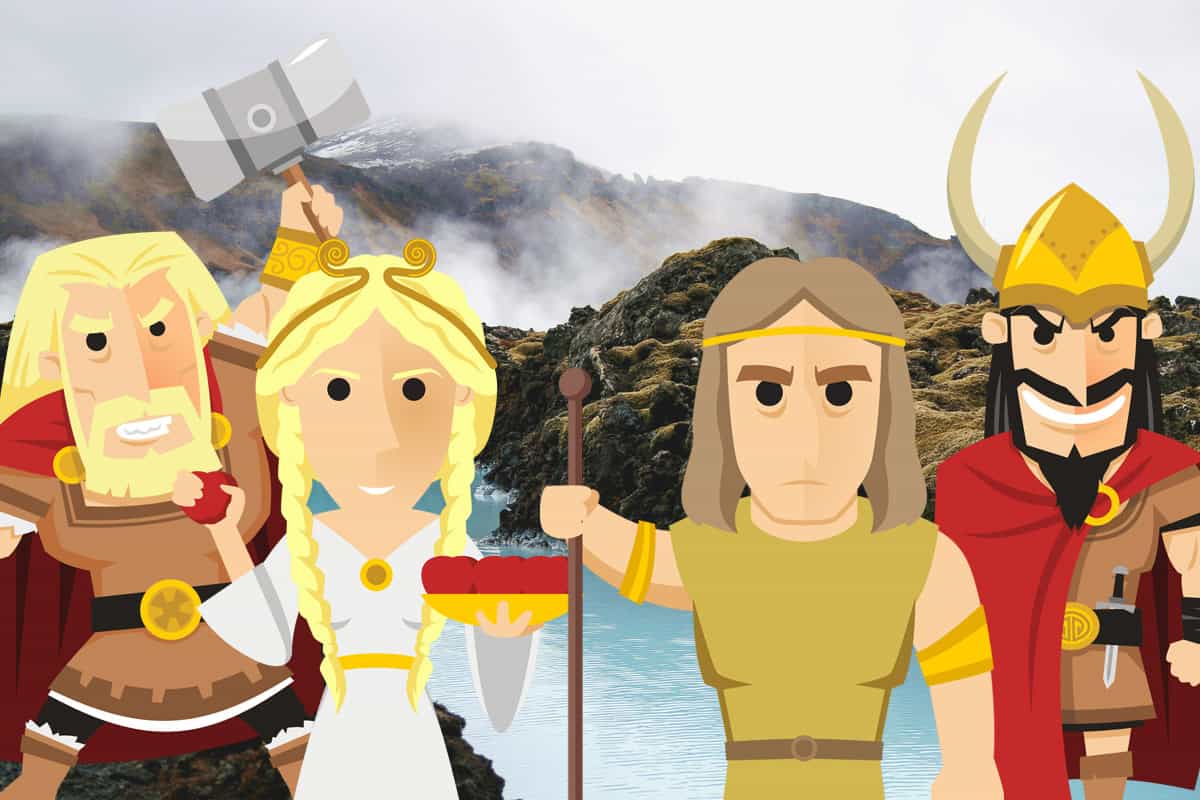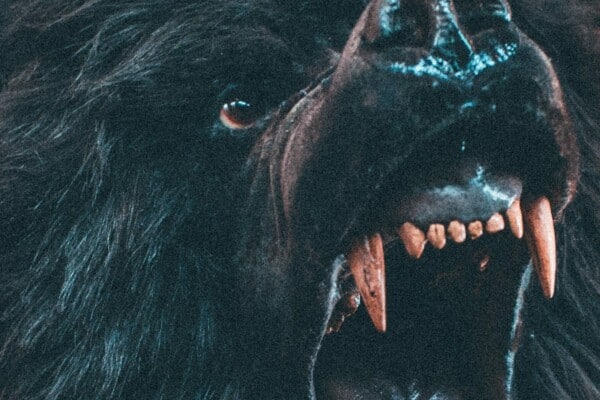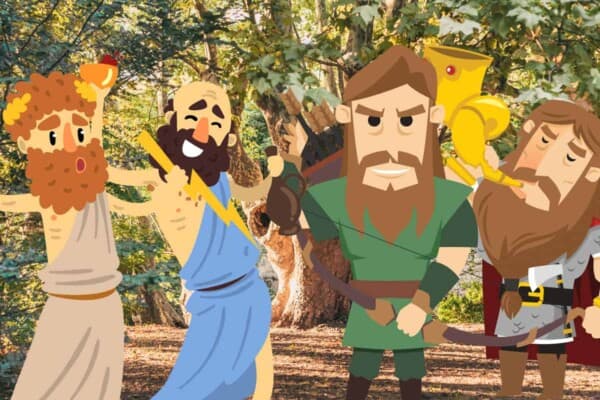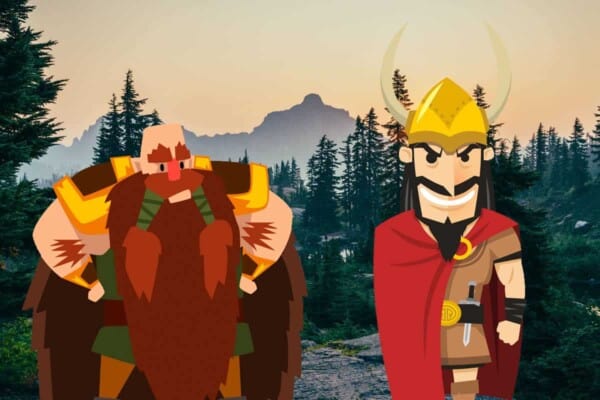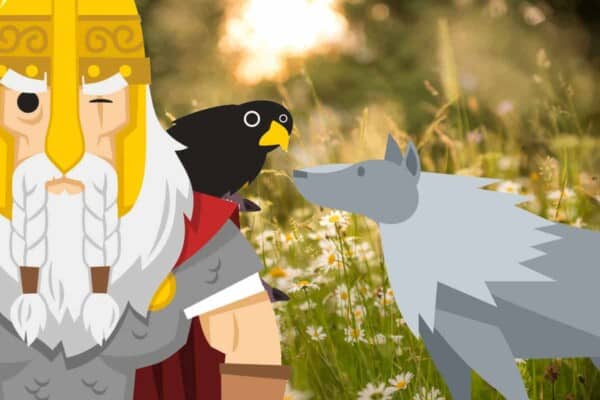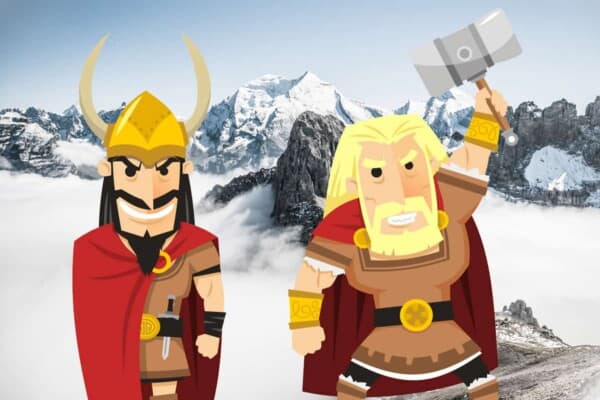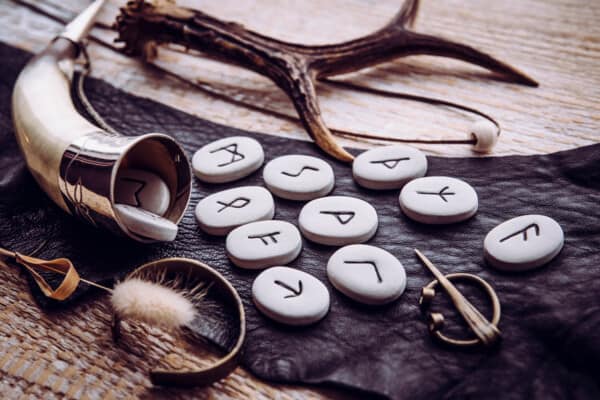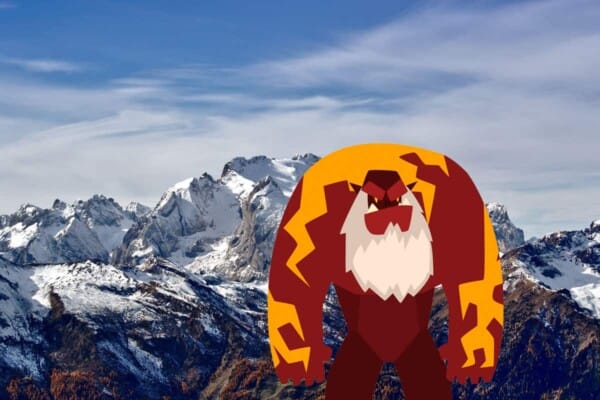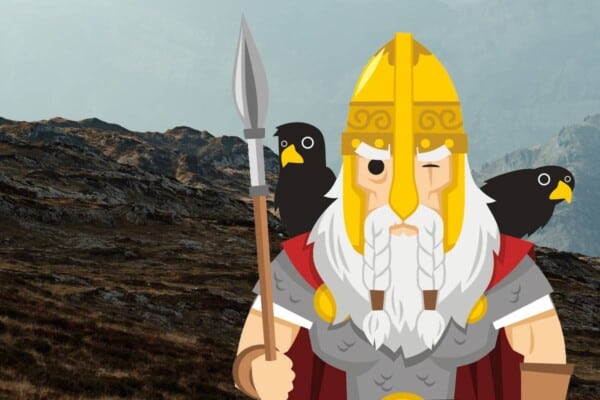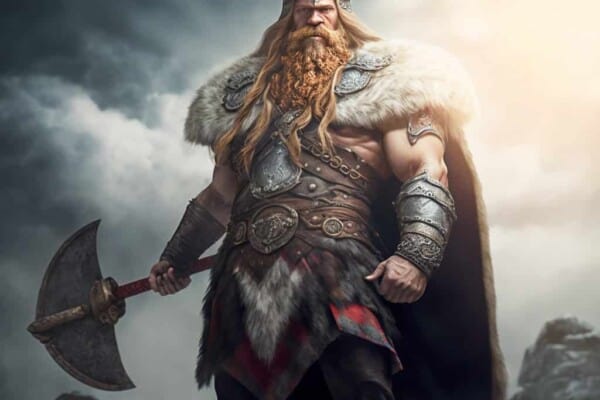In Norse mythology, there are many different entities, creatures and monsters. It can take a great deal of time to fully appreciate the complexity and variety.
When we come to look at the gods and goddesses in Norse mythology, you will notice that they fall into one of two tribes or groupings. These two tribes are known as the Aesir gods and the Vanir gods.
The Aesir gods are the main tribe and have far more members than the Vanir. The key gods in the Aesir tribe are Odin, Thor, Loki, Balder, Frigg, Heimdall, Tyr, Idunn, Bragi, Vali, Vidar and Foresti. The Aesir are thought to maintain order in the Norse universe and they are rivals and opponents of the giants who with to bring chaos to the universe. The Aesir gods live in Asgard, 1 of the 9 worlds of the universe.
The Vanir gods are the secondary tribe and have only a few members when compared with the Vanir. This small number is in part because of the limited record of Norse mythology. It is said that the Vanir as gods are more associated with the natural world. The key members of the Vanir tribe are Njord, Nerthus, Freya and Freyr.
So that’s a brief overview of the two tribes of Norse gods, lets now look at some of the key characters in some more detail.
The Aesir Gods
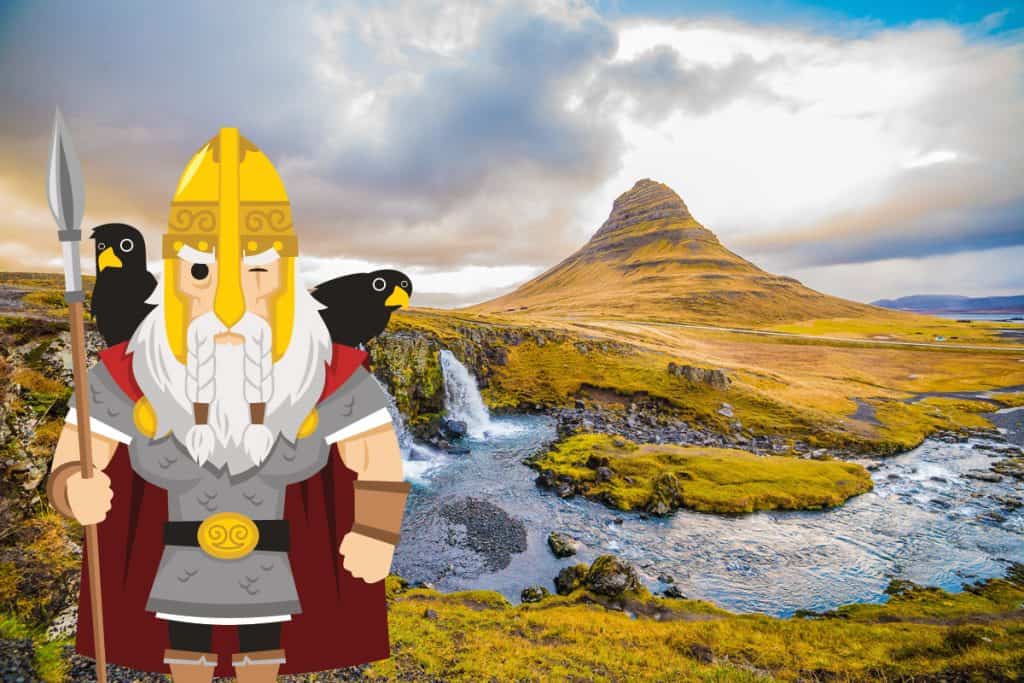
Odin – The Father of the Aesir
Odin was known to be the father of the Aesir gods. He was in charge of everything from the sky to war and death. He was also known to be the son of the giantess Bestla and one of the first gods, Bor.
Odin features in many of the myths, especially those at the beginning of the world. Here is just one of the more interesting tales. One day, Gullweig, a beautiful witch, showed up in Asgard. She loved gold and couldn’t stop talking about it. This upset the gods, especially Odin. He decided the only way to silence her was to kill her. The Aesir tried to kill her but to no avail.
She kept coming back and would tell anyone who listened that the Aesir were mean to her. The Vanir couldn’t stand what the Aesir were doing to Gullweig. They went ready to storm Asgard and take revenge for her. They were too well matched and no end to the war was in sight. So, the Aesir and the Vanir sat down to discuss what to do.
They decided to make peace between them and instead, become enemies of the giants. As an act of good faith, each side sent someone as a ransom to the other side. Odin sent Hoenir, his brother, as well as the god Mimir.
This trade didn’t end up working out, as the Venir cut off Mimir’s head and sent it back to Odin.
Odin is important in Norse mythology because he is the father of the gods. He is life and death, wisdom, magic, and the one who reigns over Valhalla.
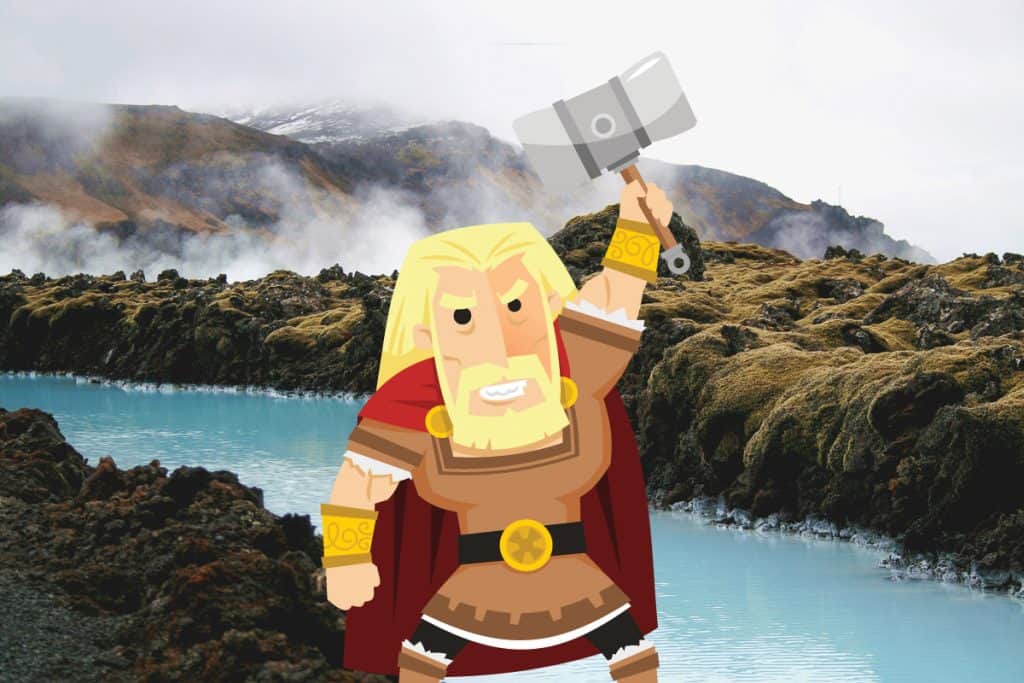
Thor – The Killer of Giants
Thor was said to be the son of Odin and Jord. He was also known as the killer of giants and the god of thunder. He was rather hot-tempered but was respected by the gods, the giants, and the humans. His weapon was a hammer that would return to him once it was thrown.
Like his father, Thor is involved in many of the Norse myths. Here is one of the best myths involving Thor. One day, Thor’s hammer disappeared. Loki heard Thor in a rage and decided he would help him. He went to the goddess, Freya, and borrowed a suit made of falcon feathers.
He then flew to the home of the giants. Thrym, the king of Hrimmturssar greeted Loki. Loki asked if he had stoled Thor’s hammer and the king said he had. He went on to say he had hidden it so well that the only way anyone would ever see it again was if Freya was given to him as his bride. Loki flew back to Thor and told him what had happened. Freya was furious.
The gods all met to discuss what to do. They were left pretty defenceless without Thor and his hammer. Thor ended up going dressed as Freya to the king, and Loki was dressed as his bridesmaid. They both fooled the king until the hammer was brought to “Freya.” Once he had the hammer, Thor dropped his disguise and started to kill the giants around him.
Thor is important because he is one of the major gods. He was known as the god of thunder and storms. He was also the defender of the Aesir and Asgard, protecting them both from giants.
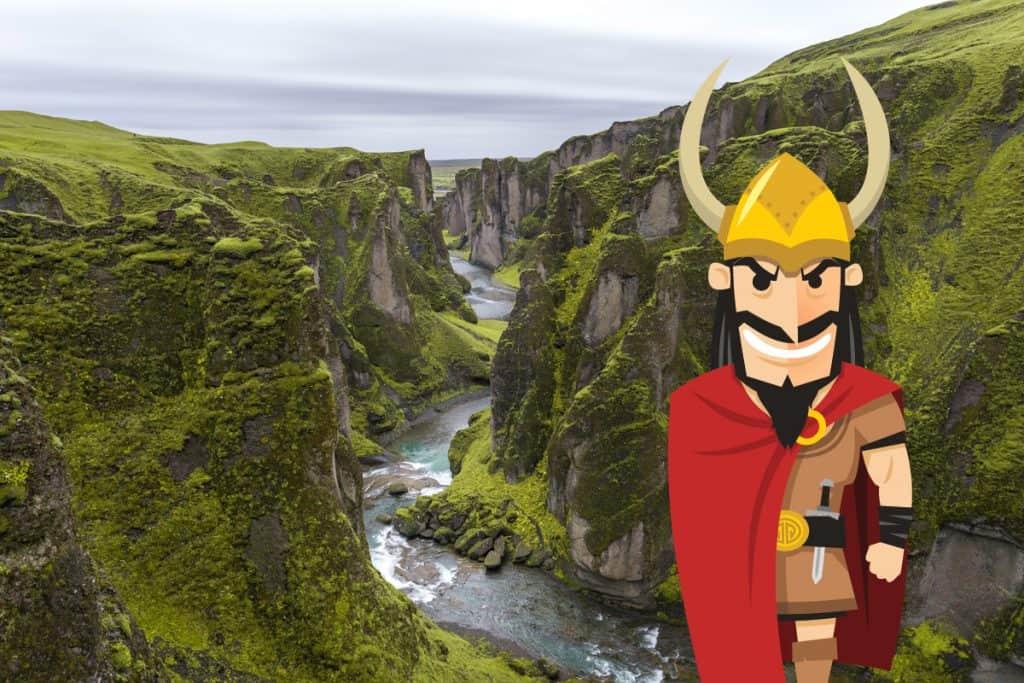
Loki – The Trickster God
Loki was known as the son of the giant Farbauti and the giantess (or goddess), Laufey. Loki’s title was the trickster god. He liked to cause problems and was well versed in lying and deceit. Loki was not one of the official Aesir gods, but he was considered to be one of them. There were stories that Loki might be Thor’s blood brother. Loki was also known to be capable of turning himself into any creature at will.
One night Loki decided to cut off Thor’s wife’s beautiful hair. Thor was enraged by this. Loki pretended he was very sorry and told Thor he would go and bring back hair made of real gold for Thor’s wife, Sif, as well as treasures for the other gods. Thor let Loki go. Loki went to the dark elve’s homeland which was also home to the dwarfs. He went to the sons of the dwarf Ivaldi and asked them to make golden hair for Sif. They also made treasure Loki could take back with him.
The brothers created wonderful treasures like a ship that could be folded and fit in your pocket, and eventually even Thor’s hammer. Loki played a trick on the maker of the hammer, Brokk. It resulted in the hammer having a very short handle. Loki eventually returned to Thor and the other gods and gave them the gifts.
They were all impressed with the hammer and knew it would help protect them from the giants.
Loki is a unique “god” because he was accepted by the Aesir even though he wasn’t actually one of them. He made the lives of the gods and humans rather interesting, as he was known as the trickster and could be malicious, funny, and even playful. He has major roles in many different myths involving the gods and goddesses of both the Aesir and Venir.
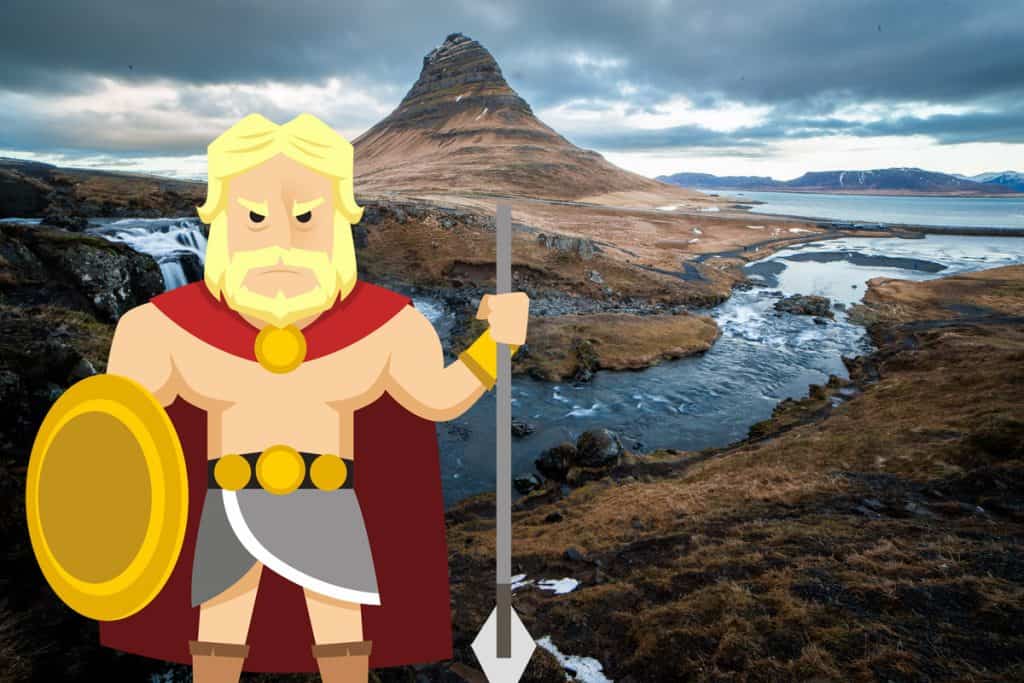
Balder – The Representation of Fate
Balder was known to be the son of Odin and Frigg. He was very well-loved by the other Aesir gods and goddesses.
The myths around Balder all centre on his untimely death. Balder started to have nightmares as a young man. These nightmares told of his impending death. He was so unhappy, his unhappiness transferred to everyone who lived in Asgard.
His father, Odin, wanted to help his son. He set out with his horse, Sleipnir and traveled to the underworld, Niflheim. He spoke with a seeress, asking her why the halls of hel were decorated as if there was to be a feast.
She told him it was a feast for Balder and that he would be killed by his brother, Hodur. Odin (under a false name), asked the seeress who would avenge Balder. She told him Odin’s son, Vali, would avenge his brother. Eventually, the seeress figured out she was talking to Odin and wouldn’t give him any more answers.
Balder is important because he represents fate. Knowing the truth of his death could have caused it to happen. His mother had made him invincible, but it wasn’t invincibility that lasted forever. His death shows things are connected and fate exists. It raises the question of how much control do we actually have over our destinies.
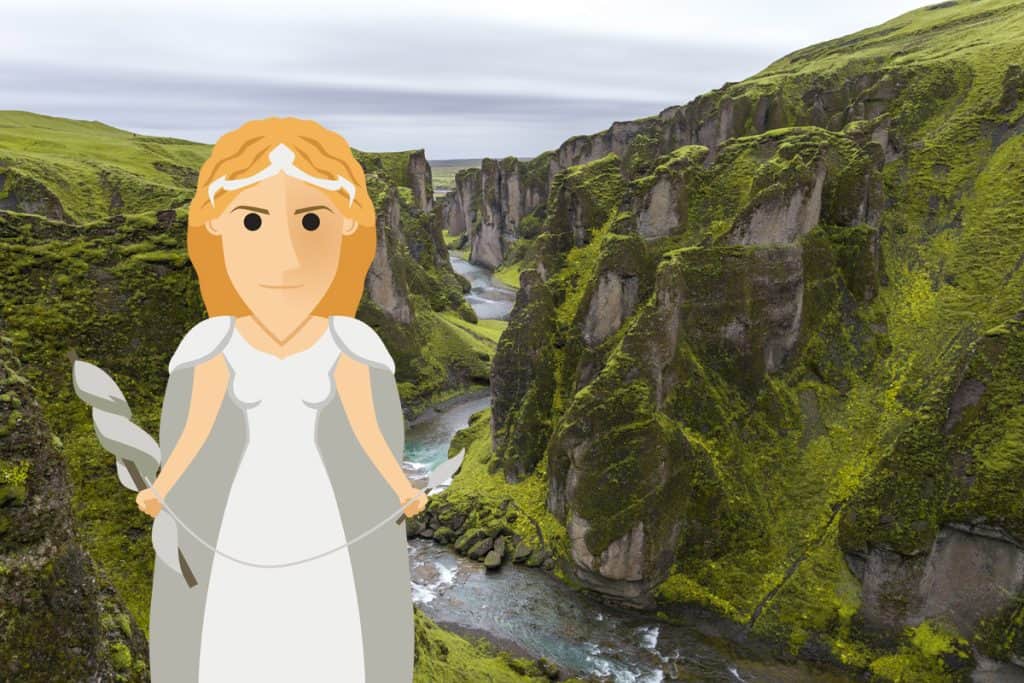
Frigg – The Earth Mother and Sorceress
Frigg was known as Odin’s wife. She had the title Earth Mother and was the highest-ranking goddess of the Aesir. She is most associated with love and marriage. Some would say Frigg was also a sorceress and could see into the future. She is often related to the goddess Freya.
When Frigg finds out that her son Balder is doomed to die, she goes into a frenzy. She told her messengers to go to each corner of the earth and get promises from everyone to not harm her son. The messengers return with promises from every creature on the planet that they will not harm Balder.
There was one mistletoe the messengers neglected. They thought it looked too pitiful to actually cause Balder any harm. The gods and goddesses knew Balder couldn’t be injured, so they took to throwing weapons at him and trying to injure him for fun. Nothing would work. Loki didn’t partake in this fun. Instead, he disguised himself as a woman and went to Frigg.
He told her how horrible it was the gods and goddesses were playing with Balder. Loki then got Frigg to reveal the one vulnerability Balder had – the mistletoe. Loki ended up retrieving the mistletoe and giving it to Balder’s half-blind brother, Hodur. Hodur had no idea what the mistletoe was for, but when he threw a weapon at Balder, Balder dropped dead.
Frigg is important not only because she was Odin’s wife and possessed power, but she was also (very likely) responsible for Balder’s fate. Even though she most likely had the power to see the future, not even that ability could save her son from his ultimate death.
She is a future seeing goddess who couldn’t prevent her son from dying. It shows the gods and goddesses have weaknesses just like humans, making them more relatable.
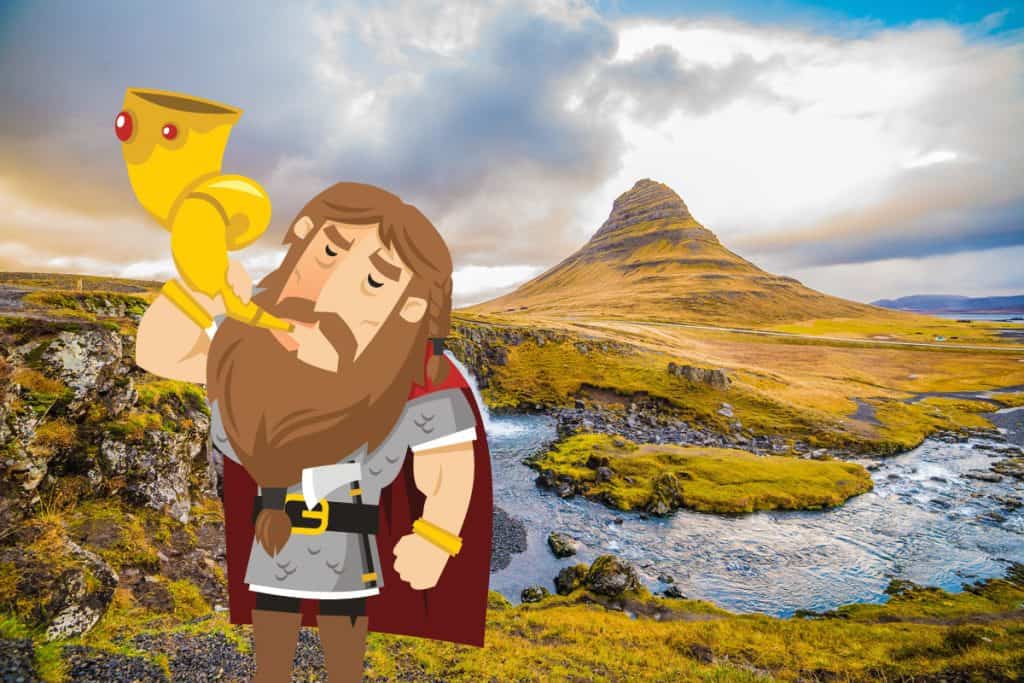
Heimdall – The Guardian of the Gods
Heimdall was thought to be born from Odin and a mysterious nine mothers. He was often referred to as the god of light and the guardian of the gods. He had outstanding sight and could see for 100 miles.
Some also believed he could see into the future. He also had the ability to know of all the happenings of those who crossed the Rainbow Bridge into Asgard.
One day Odin was walking along a beach and came across nine beautiful giantesses. They were known to be the daughters of Aegir, the sea god. Odin was so taken with them that he decided he would marry all of them.
They gave him Heimdall. Heimdall was raised with earth’s strength, the sea’s moisture, and the sun’s heat. He grew tall and strong and was eventually taken to Asgard. The gods gave him gifts like extraordinary senses and named him guardian of the Rainbow Bridge.
Heimdall is important because he is the god who guards the Rainbow Bridge. Knowing who is coming to the bridge and why is imperative in keeping the home of the gods safe from attack.
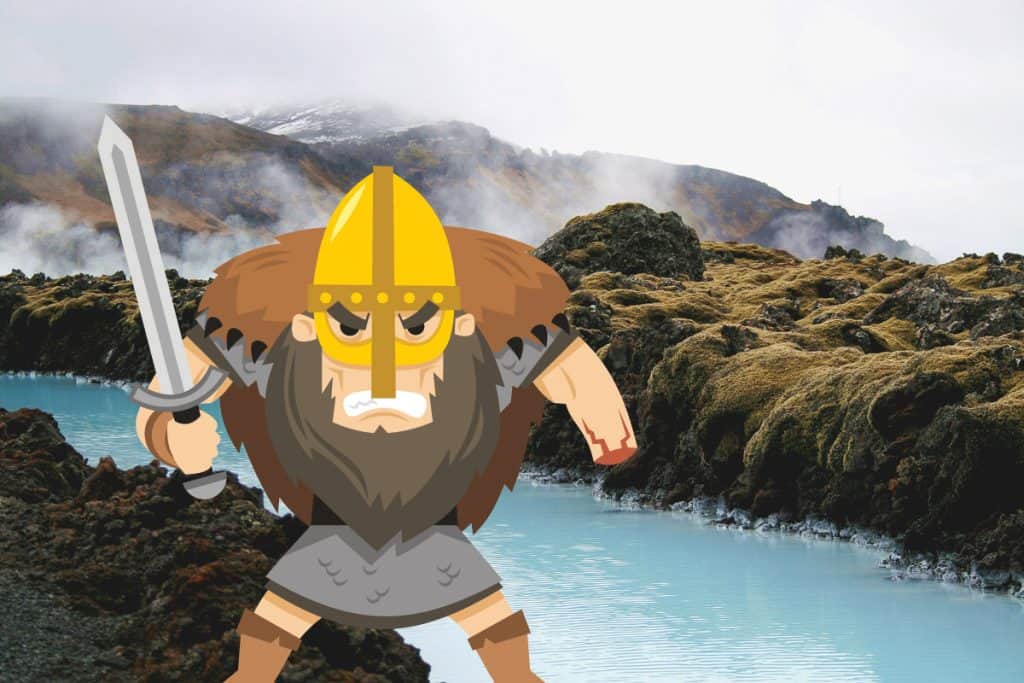
Tyr – The God of Law and the Sky
Tyr was known to be the god of the sky and the bravest god. He was mainly concerned with law and keeping order. Some stories say Tyr is the son of Hymir, a giant, while other stories say he is the son of Odin.
Tyr was the god who had his hand bitten off by the wolf Fenrir. Fenrir was the offspring of Loki and Angrboda, the giantess. He was a huge wolf whose jaws could stretch from heaven to earth. The gods and goddesses were terrified of him. Tyr was the only one of the gods who wasn’t afraid and ended up befriending Fenrir.
The other gods didn’t like how big Fenrir was getting, so they wanted to chain him up. Every chain they used, Fenrir would escape from. Enlisting the help of the dwarves, the gods had them create a silken bond. It was unlike anything else that existed on earth. The gods took Fenrir to the island of Lyngvi.
Fenrir agreed to be tied up again if one of the gods would be brave enough to put their hand in his mouth. The only god who was willing was Tyr. Fenrir couldn’t break through the chains and he ended up biting off Tyr’s hand. The wolf stayed chained until Ragnarok.
Tyr is important because he is the god who believed in just actions. He saw right and wrong and wasn’t afraid to put himself in a situation if it was the right thing to do. When he put his hand in Fenrir’s mouth, he knew what the potential outcome was, but he also saw it as a just act for what the other gods were asking of Fenrir.
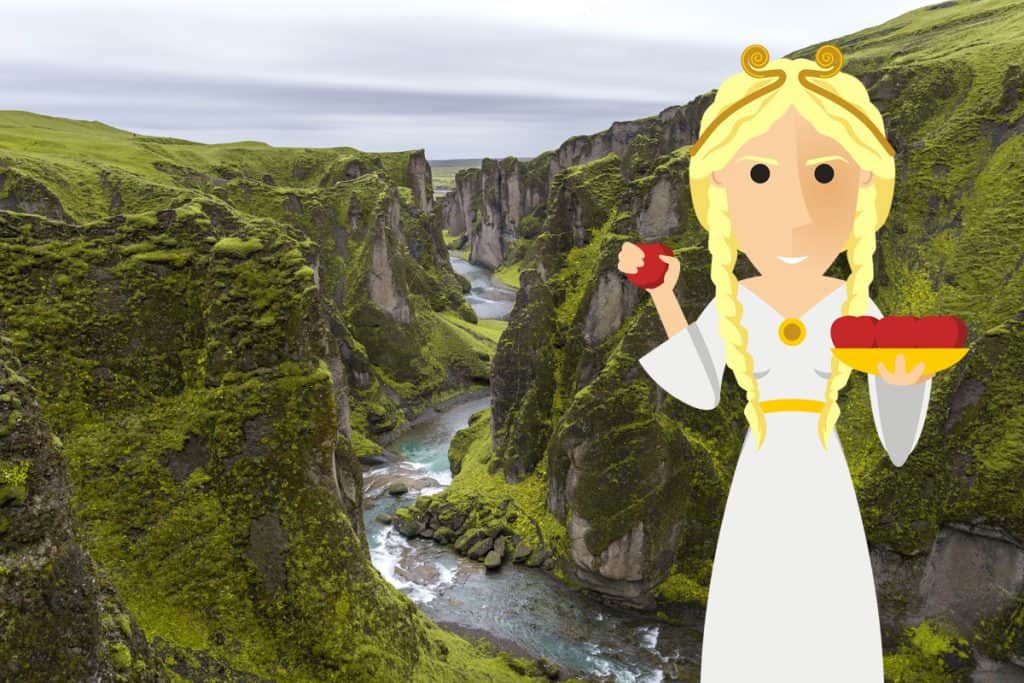
Idunn – The Goddess with the Apples
Idunn was known to be a golden-haired goddess who was in charge of giving eternal youth apples to the other Aesir gods. She was married to Bragi, the god of poetry.
One day, Idunn and her apples were kidnapped by an eagle. This occurred because Loki got into trouble with an eagle who dragged him over thorns and rocks until Loki agreed to bring Idunn and her apples to the eagle. The eagle was actually Thjazzi, a giant who had disguised himself. Loki brings Idunn to the forest and Thjazzi steals her and her apples away. The gods start to turn old because Idunn can no longer give them her special apples.
They make Loki go to get Idunn back. Loki turns Idun into a nut and flies her back to Asgard. Thjazzi, in his eagle form, goes after them. But, the gods are too smart and have a fire set up while Loki flies with Idunn into Asgard. The fire ends up singing the wings of Thjazzi and he falls from the sky.
This myth is important because it is considered to be a very dangerous moment for the gods. Giants and gods are never supposed to be able to mate. The gods are also never supposed to grow old, so this myth also represents their potential mortality.
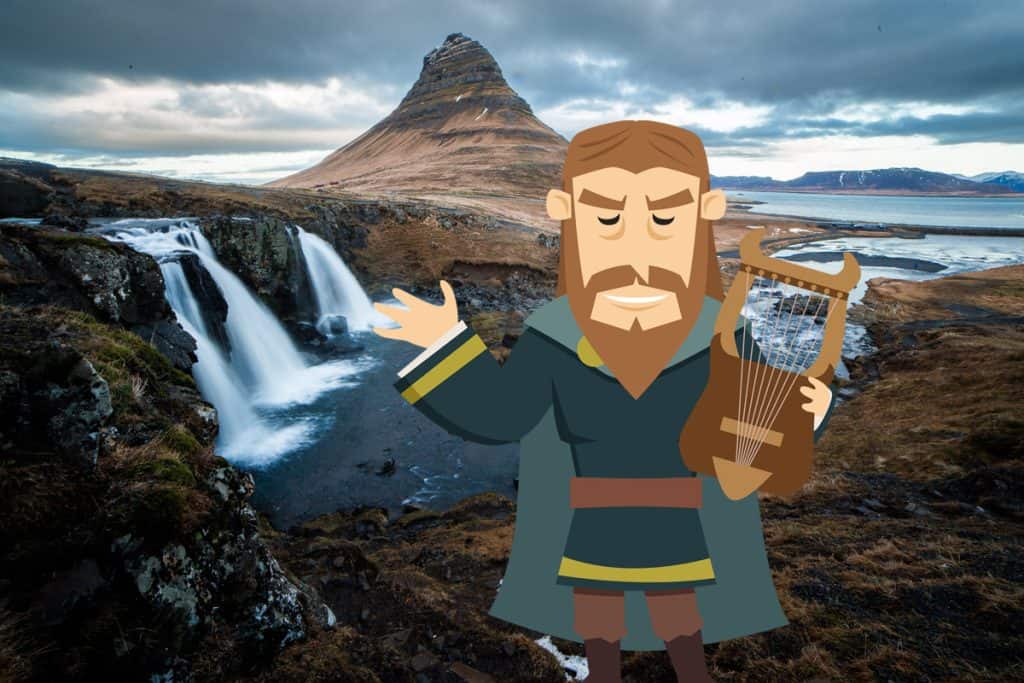
Bragi – The God of Poetry and Music
Bragi was known as the son of Odin and Gunlod. He was considered the god of poetry, music, and grace. He knew how to play the harp and would often be found singing beautiful songs that charmed the trees and flowers. He was also known to be married to the goddess Idunn.
The magician, Aegir, who knew black magic and lived on Hler’s Island, was invited by the Aesir to partake in a great feast. Aegir was seated beside Bragi. The magician was quite fascinated with Bragi, and asked him to tell him stores about the gods. Bragi recounted many stories, not only about the gods, but about animals, people, and objects.
Bragi is important because he told stories. Perhaps too many stories. The night of the banquet, he spoke for a very long time to Aegir. While Bragi’s stories could be meant as a way to pass on harmless knowledge, they could also be used as knowledge against the gods to cause them harm. Sometimes it is better to not say anything than to say too much.
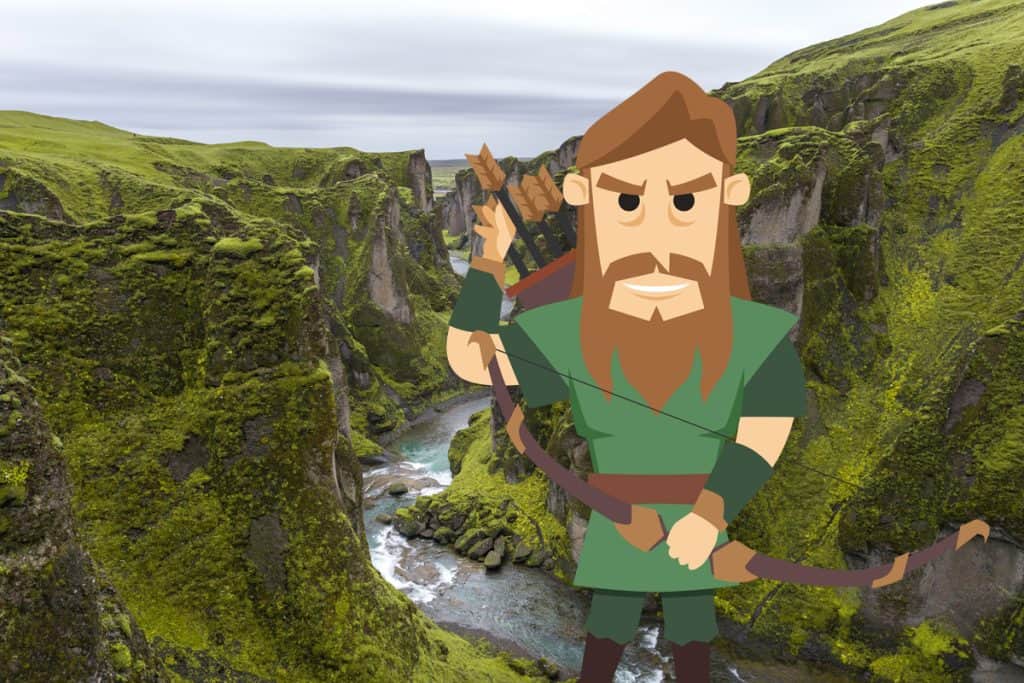
Vali – The God of Archery
Vali was known to be the youngest son of Odin and Rinda. He was associated with light and archery. He was also one of the few gods to survive Ragnarok.
When Balder was killed by his half-brother Hodur, Vali was the one who avenged him. It was an act that had been foreseen by a seeress Odin had gone to, to find out more about why Balder was having horrible dreams.
He was told that his son’s death would be avenged by another one of his sons who would also be the son of Rinda. This led Odin on a hunt to locate Rinda, as he had yet to meet her. Odin sent his messenger, Hermod, to find out where Rinda was. Hermod went to the wizard, Rostioff. Rostioff used his dark magic to turn the sky dark and then to red.
In the red sky, a beautiful woman and a boy were seen. The boy grew and grew until he was the size of a man. This giant child then shot an arrow. Hermod was told the woman was Rinda, the daughter of King Billing. It was she who was to be the mother of Vali. Hermod went back to Odin and told him everything he had learned. Odin then disguised himself as a man and went to find Rinda. Odin eventually won Rinda over and she married him. They had Vali together.
The day Vali was born, he started to grow and grow. Eventually, he was as big as a man. He then took an arrow, shot it at Hodur, and thus avenged his brother Balder.
Vali is important because he brought the events of Balder’s death full circle. Some may even say he had been born strictly for the purpose of avenging his brother. The death of Balder and the avenging act were both foreseen. How much a part each vision played in actually making the events happen, no one can really know. But, either way, Vali fulfilled the prophecy.
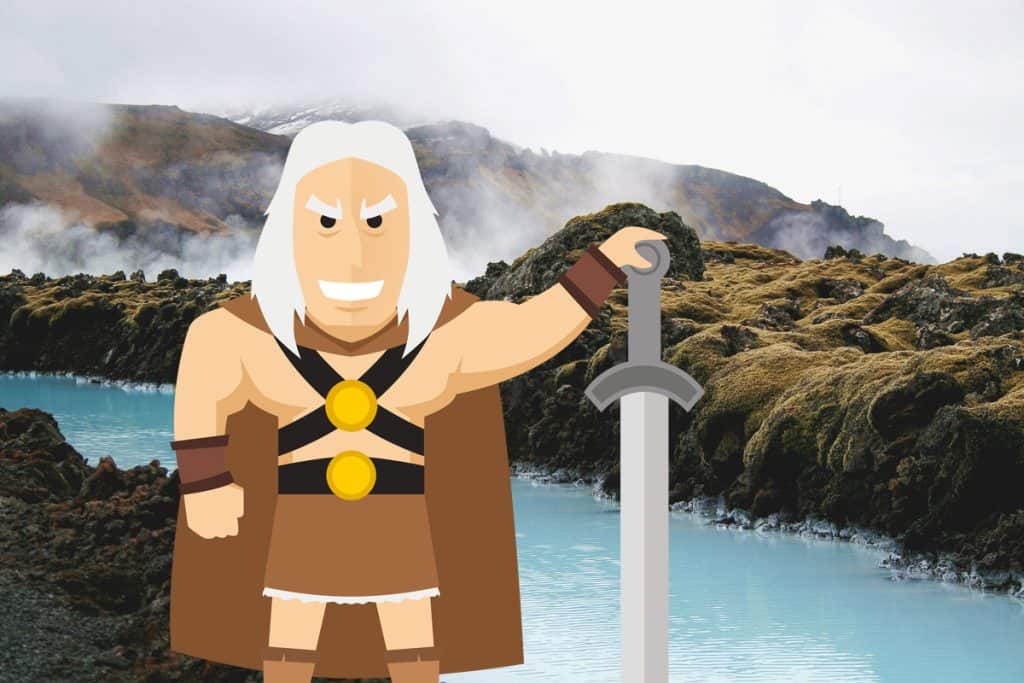
Vidar – The Avenger of Odin
Vidar was known to be the son of Odin and Grid, the giantess. He was a very silent god, but his actions spoke very loudly. He was also known to be the strongest god after Thor.
While Vidar was known for his silence, he was the one who avenged Odin’s death at Ragnarok. Vidar found Fenrir and attacked him because Fenrir had eaten Odin. Vidar tore the wolf in two using his specially designed shoe.
Some say the shoe had been made specifically for that moment. It was a special show that was both strong and sturdy and likely had magical properties. Without the show, Vidar likely would not have been able to tear Fenrir into two pieces.
Vidar is important because he avenged Odin. He is also important because he was one of the few gods who survived Ragnarok. His survival led him to become one of the rulers for the new world.
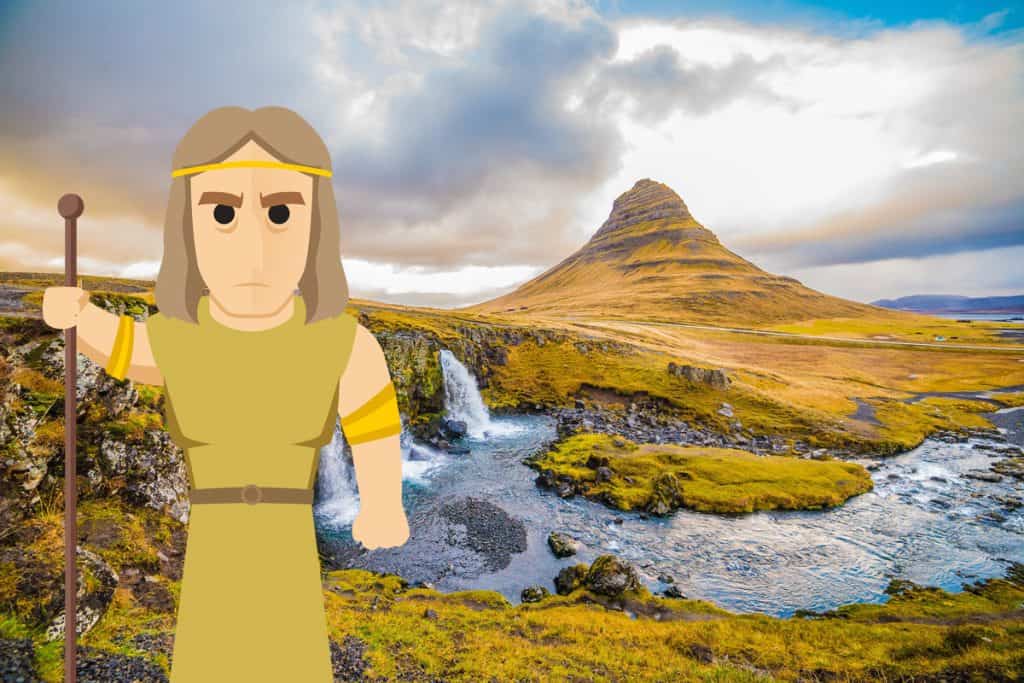
Forseti – The Lawspeaker
Forseti was known to be the son of Balder and Nanna. He ruled over the hall in Valhalla called Glitnir and was known for settling disputes.
He was important because he was lawful and was in charge of settling disputes. He may have been representative of the lawspeaker, or the Scandinavian head for the legal assembly.
The Vanir Gods
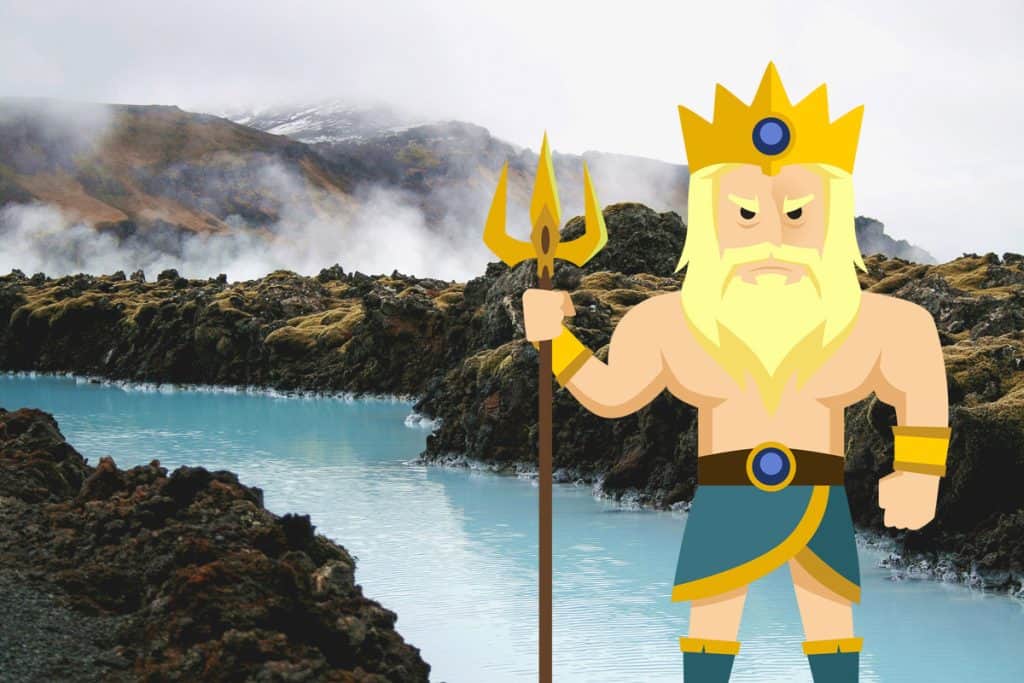
Njord – The God of the Sea
Njord was known as the Vanir god of the sea and those who travelled on it. He was also related to fertility and wealth and held a place amongst the Aesir gods.
Njord features in one very interesting myth. After the return of the goddess Idun and her apples of eternal life to the Aesir gods, the giantess of winter, Skade, stormed Asgard. With her father’s death, she wanted restitution.
While the gods offered her gold, she wanted an Aesir husband. The gods agreed to this but told her she had to pick her husband based on his feet. She chose the best looking feet thinking they belonged to the beautiful Aesir god, Balder. Instead, the feet belonged to Njord. She was very upset with her choice.
Njord and Skadi tried to find a suitable place they could both live. But, Njord hated Skadi’s winter territory, and Skadi hated the watery territory Njord ruled over. While they tried to spend half their time in one home and half their time in the other, Skadi would spend more time in her wintery homeland. They finally agreed to part ways.
Njord is important because he was likely representative of failed marriages. While he and Skadi tried to work things out, they couldn’t find a way that would make them both happy.
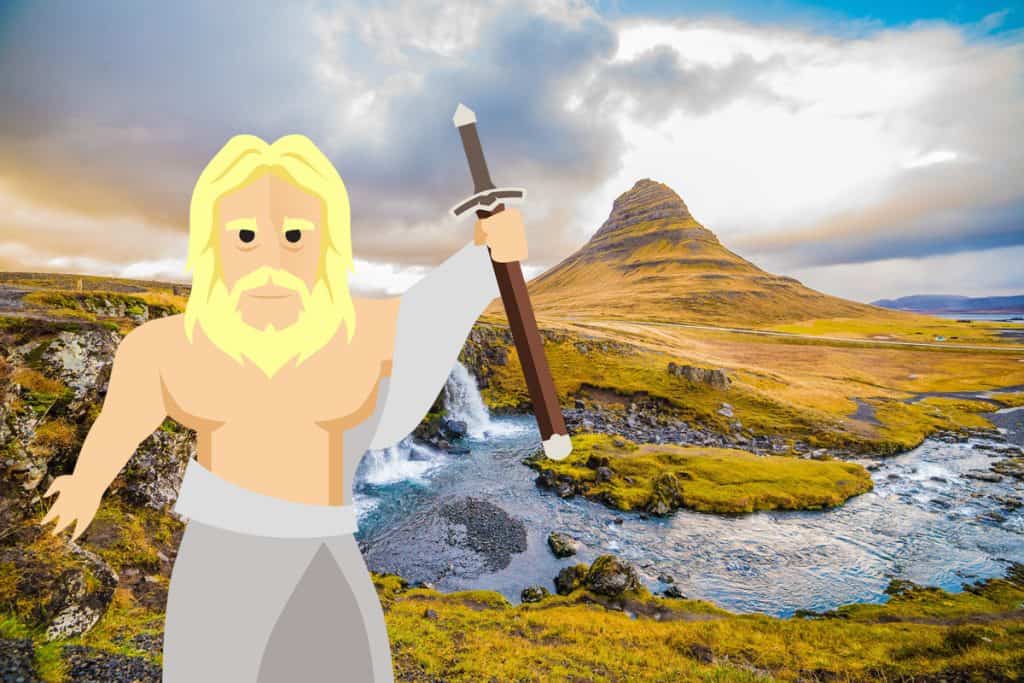
Freyr – The God of Sun, Harvests and Rain
Freyr was known to be the son of Njord and Vanir. He was associated with sun, harvests, and rain. He lived in the elf-world and was sometimes referred to as Lord of the Elves.
He was the owner of the ship Skidbladnir which could be folded and placed in a pouch, as well as the Gullinbursti (a golden boar), and a magical sword that would strike giants and trolls. He was considered to be a special member of the Aesir gods after being taken hostage during the Aesir-Vanir war.
One day Freyr decided to climb onto Odin’s throne and look out over the nine worlds. He saw Gerda, a giantess whose father was Gymir. He was instantly taken with her. This was a problem, as the giants were an enemy. Nothing he did would help him get over Gerda. HIs father, Njord, sent Frey’s friend to talk to him.
His friend, Skirnir, told Freyr he would get Gerda for him, so long as Freyr lent him his horse and magical sword. Freyr told Skirnir he agreed, and off his friend went to win the heart of Gerda for Frey. When Skirnir came upon Gerda, she wanted nothing to do with him. Skirnir threatened her until she agreed to marry Frey. In return,
Skirnir left Frey’s magic sword behind for Gerda’s father. They were married nine days later and were said to be a wonderfully happy couple. While Freyr was warmth, Gerda was ice. The two of them were perfect for one another.
Freyr is important because he was a very well-loved god. He was in charge of harvests, prosperity, fertility, and wealth which made him very important among the Norse people and Venir/Aesir gods.
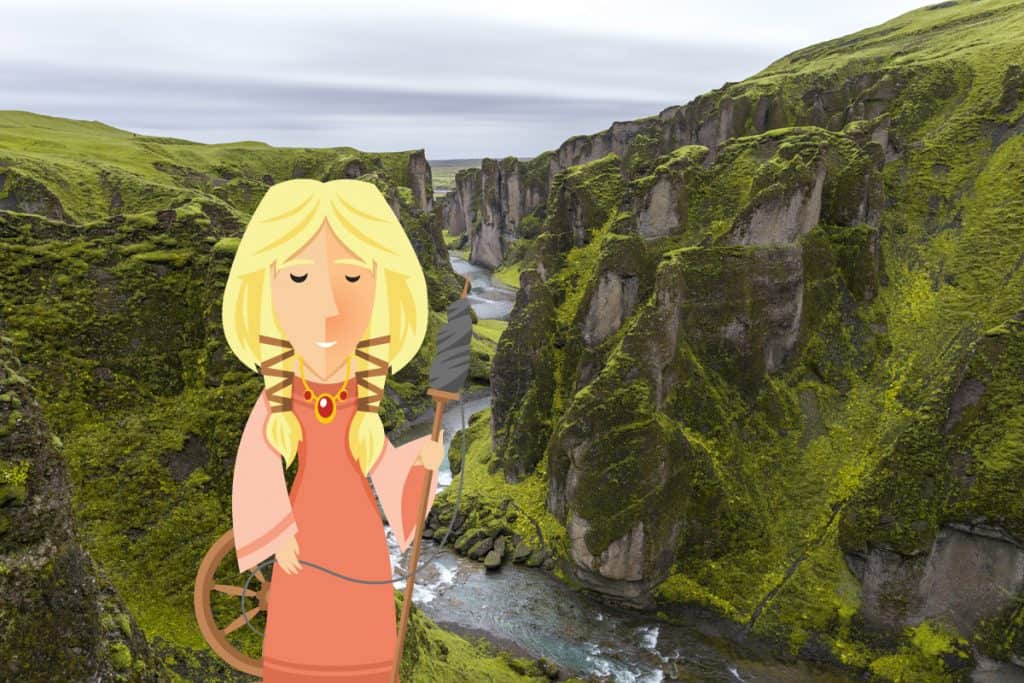
Freya – The Goddess of War and Witchcraft
Freya is the only Venir female that has a name. She was known to be the daughter of Njord and the sister to Frey. She loved battles and war and was talented in witchcraft.
As an honorary member of the Aesir, she taught them the art of Northern magic. She was also well loved by the giants and was considered to be the goddess of fertility, beauty, and the finer things in life.
Freya loved fancy things, especially jewelry. When she saw a golden necklace the dwarves had made, she decided she would do anything to have it. The dwarves didn’t want her gold or gems, instead, they wanted her. Each dwarf wanted to spend one day and one night with her. She agreed. Loki had heard the whole exchange. Being the trouble maker that he was, he went to Odin and told him what Freya was doing. Odin was enraged. He told Loki to bring him the golden necklace.
Loki retrieved the necklace from Freya. When she discovered it was gone, she went to Odin. Odin wasn’t happy with her but told her he would get the necklace back for her if she would cause problems between two chieftains. He wanted lots of killing and blood. Afterward, Freya would bring back to life everyone who died. She agreed to the terms. Odin sent the god Heimdall after Loki to get the necklace back. He retrieved it and Freya got her prized possession.
Freya is important because she represents lust and greed. She is willing to do anything to get what she wants, and she was great at manipulating those around her. Her abilities in magic also made her very sought after and feared. She was both loved and hated.
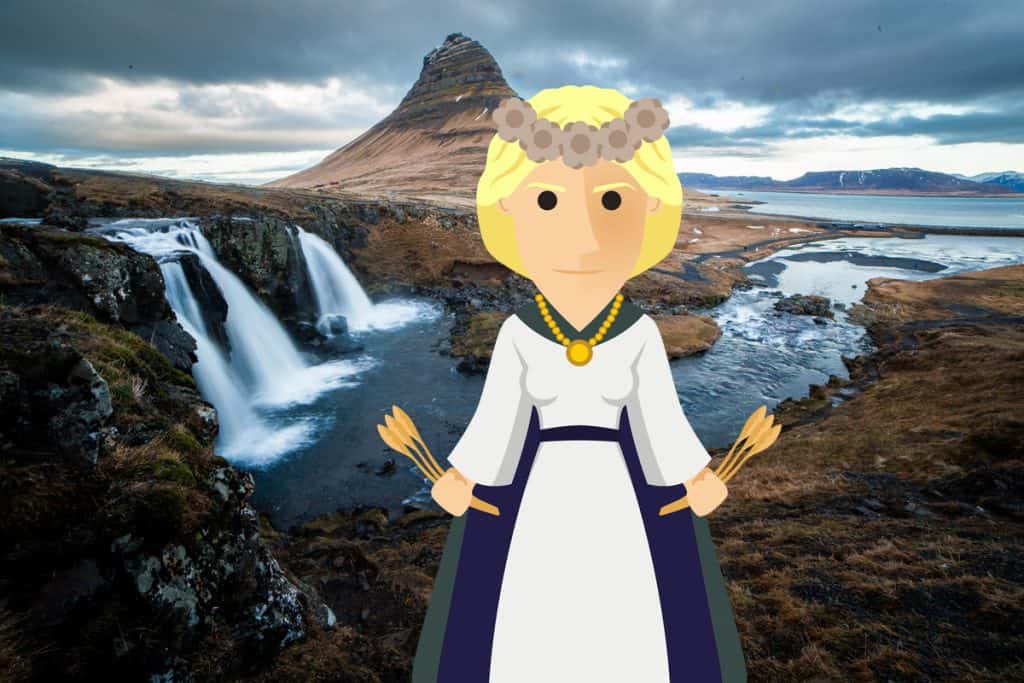
Nerthus – The Goddess of Fertility
Nerthus was a Venir goddess known as the Earth Mother. She was responsible for fertility and may have been the mother of Freyr and Freya. She often was seen amongst the humans and took part in their affairs.
There are no real myths with Nerthus in them. The most notable mention of her is in regards to being the first wife of Njord, who was scorned for also being his sister.
Nerthus is important because she was a goddess that was for the people. She walked amongst them and took part in their affairs. She was Mother Earth and played a huge role in fertility, which made her a goddess who was often worshipped in a cult-like fashion.
Final Thoughts
The Aesir and Vanir gods and goddesses are a fascinating bunch. The stories and adventures they are involved in have stood the test of time and even to this day are retold and adapted for modern tastes.
It is something of a shame that a lot of the Norse stories have been lost to time. When compared with Greek mythology and their gods, the stories on the Norse gods, in particular the Vanir, are short on detail. That being said, there is still enough to interest.
Thanks for taking the time to read this summary of the important Norse gods and goddesses.
Contents
- The Aesir Gods
- Odin – The Father of the Aesir
- Thor – The Killer of Giants
- Loki – The Trickster God
- Balder – The Representation of Fate
- Frigg – The Earth Mother and Sorceress
- Heimdall – The Guardian of the Gods
- Tyr – The God of Law and the Sky
- Idunn – The Goddess with the Apples
- Bragi – The God of Poetry and Music
- Vali – The God of Archery
- Vidar – The Avenger of Odin
- Forseti – The Lawspeaker
- The Vanir Gods
- Final Thoughts

